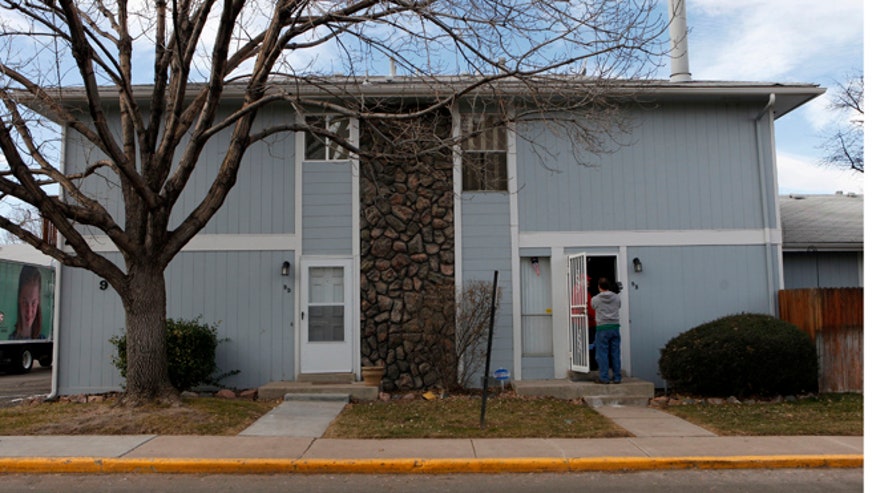
The Justice Department says for the first time that it intends to use information gained from one of the government's warrantless surveillance programs against an accused terrorist, setting the stage for a likely Supreme Court test of the Obama administration's approach to national security.
The high court so far has turned aside challenges to the law on government surveillance, saying people who bring such lawsuits have no evidence they are being targeted.
Jamshid Muhtorov was accused in 2012 of providing material support to the Islamic Jihad Union, an Uzbek terrorist organization that, authorities say, was engaging NATO coalition and U.S. forces in Afghanistan.
According to court papers in the case, the FBI investigated Muhtorov because of his communications with a website administrator for the group.
In a court filing Friday, the government said it intends to offer into evidence in Muhtorov's case 'information obtained or derived from acquisition of foreign intelligence information conducted pursuant to the Foreign Intelligence Surveillance Act of 1978.'
Last February, a sharply divided Supreme Court threw out an attempt by U.S. citizens to challenge the expansion of the surveillance law used to monitor conversations of foreign spies and terrorist suspects.
In a 5-4 vote, the court ruled that a group of American lawyers, journalists and organizations could not sue to challenge the 2008 expansion of the law because they could not prove that the government would monitor their conversations along with those of potential foreign terrorist and intelligence targets.
In the Muhtorov case, the FBI obtained email communications from two accounts that Muhtorov used, according to the court papers. The FBI also obtained communications originating from Muhtorov's phone lines. In one call, Muhtorov told an associate that the Islamic Jihad Union said it needed support, an FBI agent said in an affidavit filed in the case. The associate warned Muhtorov to be careful about talking about a founder of group, the affidavit stated.
The FBI also said Muhtorov communicated with a contact with the group by email using code words, telling a contact that he was 'ready for any task, even with the risk of dying.'
Muhtorov and another man, Bakhtiyor Jumaev, are suspected of plotting a terrorist attack planned by the Islamic Jihad Union, an FBI agent said in an affidavit. The group first conducted attacks in 2004, targeting a bazaar and police, and killing 47 people. The organization subsequently carried out suicide bombings of the U.S. and Israeli embassies and the Uzbekistani prosecutor general's office in Tashkent, Uzbekistan.
Muhtorov, a human rights worker, resettled in Aurora, Colo., in 2007 with the help of the United Nations and the U.S. government. He was arrested Jan. 21, 2012, in Chicago with about $2,800 in cash, two shrink-wrapped iPhones and an iPad as well as a GPS device. He has denied the criminal charge.
In September, Supreme Court Justice Antonin Scalia, who had ruled with the majority in the earlier 5-4 ruling, said the courts ultimately would have to determine the legality of the NSA surveillance programs.
{ 0 comments... Views All / Send Comment! }
Post a Comment